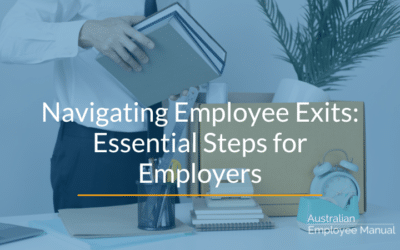Our goal is to provide you with a reputable and straightforward source of information to help you when briefing your staff, and to help you to plan your response.
We are not doctors or infectious disease specialists, so in preparing this advice, we have researched widely and have included links to government and scientific peer-reviewed information where relevant.
What is Coronavirus?
Coronaviruses are part of a large family of viruses that causes illnesses ranging in severity from the common cold through to more severe diseases including SARS (SARS-CoV as it was officially known).
Coronaviruses are what are called zoonotic, meaning that they are transmitted between animals and people.
Covid-19 is a new strain of Coronavirus that had not previously been seen in humans before the outbreak in Wuhan in December 2019. That’s why you may also hear it called novel-coronavirus in the media or some publications.
Common Symptoms of Coronavirus
Symptoms of Coronavirus may appear in as little as two days after contact or as long as 14 days after exposure, but scientists are still assessing these periods.
The most common symptoms of Coronavirus are fever, tiredness and a dry cough. Some patients also have aches and pains, nasal congestion, runny nose, sore throat or diarrhea.
These symptoms for the majority of patients are very mild and begin gradually.
The early stages of the disease are often unusually mild, which is why it is possible to catch Coronavirus from someone who has a slight cough and who doesn’t otherwise feel unwell.
Some people have the disease but don’t show any symptoms and don’t feel unwell.
Currently, over 80% of people who develop mild symptoms fully recover within 2 weeks without needing any special treatment.
However, approximately 1 in 6 people go on to develop severe respiratory issues, including pneumonia and can have difficulty breathing.
If you develop a fever or have trouble breathing, then you need to seek immediate medical attention. The advice is to ring the GP or emergency room before arriving and mention your symptoms and any potential coronavirus contact. They will advise how to minimise the risk of transmission to other patients and staff when you arrive.
Severe cases of Coronavirus can take 3-6 weeks to recover from.
Currently, approximately 1-2% of people who develop Coronavirus have died. To put that into perspective, this is a similar rate to people who die from complications from the flu each year.
People most at risk of developing stronger symptoms include older people and people with underlying medical issues including diabetes, high blood pressure, asthma and heart issues.
How is Coronavirus spread?
While the experts are still determining all of the ways that Coronavirus spreads, the most likely means it is transmitted is from small droplets from the nose and mouth from an infected person.
These droplets land on people and surfaces around the person and other people come in contact with these droplets and then touching their nose or face.
Most common ways that this occurs include:
- Direct close contact with someone while they are infectious.
- Close contact with someone infectious when they cough, sneeze or exhale.
- Touching surfaces (e.g. door handles, phones, tables, shopping trolley handles) contaminated by an infected person who coughs or sneezes, and then touching your mouth, eyes or face.
It currently appears that Coronavirus is highly contagious from people in close contact, but there is still a lot to be learned about the contagion level and how it is transmitted.
How long does Coronavirus persist on surfaces?
Scientists are still studying this, but it seems to behave in a similar way to other coronavirus strands. It remains from a few hours to a few days depending on temperature, humidity and type of surface.
Wiping the surface with a regular disinfectant will kill the virus.
Can I get Coronavirus from food or drink?
At this stage, there is little evidence that people can catch Coronavirus from food or drink that is properly cooked and prepared. As long as there is good food and hand hygiene, the risk is extremely low. This means you can happily enjoy your favourite Chinese meal.
Can I get Coronavirus from handling mail or products from an outbreak area?
The Centres for Disease Control and Prevention (CDC) is one of the peak health bodies in the world. They state that there because viruses have a limited lifespan outside the body, there is a minimal risk of spread from products or packages that are shipped over a period of days or weeks. There is currently no evidence of transmission from imported goods.
Can I get Coronavirus from my pet?
No, there is no evidence that dogs and cats get or can transmit Coronavirus.
How long is someone contagious who has Coronavirus?
The World Health Organisation (WHO) is currently conducting tests to work out how long someone is contagious. Until definitive findings are made, governments are advising 14 days.
What is the risk of catching Coronavirus?
While the risk is very low at present in Australia, it is natural to feel anxious. Learning the facts, staying current with developing information and taking sensible precautions will help reduce your risk.
Because of how it is transmitted, the current risk in Australia is very low unless you have been in direct contact with someone who has Coronavirus.
However, this risk is changing as more people around the world fall ill, which is why all employers need to stay across current government information to be aware of any new or developing risks in their area.
Why is there so much concern over Coronavirus?
There is a lot of concern and misinformation about the Coronavirus.
Key things to know:
It is NOT more contagious than all other pathogens
Scientists are still trying to work out the exact rate of how quickly Coronavirus moves through a population and its reproductive rate.
At the moment, the transmission rate appears higher than for the flu, but lower than measles. Measles is more contagious, but it’s spread is limited by people who have been vaccinated.
It is NOT more likely to kill
The number of people who end up dying from complications from Coronavirus is approximately the same as the number of people who die from the flu.
No vaccine is available
Unlike the flu, there is no vaccine for Coronavirus.
Vaccines take time to develop and test. Even with all the positive developments by scientists, a vaccine for Coronavirus will still take 12 months – 18 months before it is available on the market.
The word Pandemic is being used
A pandemic is simply a term used when a contagious disease expands beyond localised areas of infection and crosses a number of international boundaries. When this happens, the World Health Organisation may declare it as a Pandemic.
As of today (26th February 2020), no pandemic has been declared.
The word pandemic is scary and has a whole stack of emotional connotations thanks to Hollywood and dystopian novels. The reality for the Coronavirus is not nearly as dramatic.
If a pandemic is declared, we still don’t have not enough information to know if it will be mild (so mild that we don’t really notice its impact) or severe (with major disruptions to people and businesses).
In the short term what is likely to happen is that we will see the removal or reduction of travel restrictions and the tracing of infected people to moving towards measures to stop people infecting each other in public spaces or workplaces.
We may see schools closed or events cancelled or postponed. This will only be as a precaution to help reduce the risk of it spreading the virus as a way to reduce the impact on hospitals and other health care and nothing sinister.
What has happened in countries like Hong Kong is that schools have been closed for a number of weeks, and teachers either prepare and email lessons to the parents to home school their children, or have been live-streaming classes via Facebook for kids to watch at home.
In other countries like Italy and China, all large events are cancelled, and in many cases public transport halted or significantly reduced.
People are afraid
Because there is still so much unknown about the disease, its transmission and overall severity, people are filling in the blanks with a stack of fears.
In Australia, people are still reeling emotionally after the massive bushfires and are feeling raw, which is making this fear increase.
The best counter is to provide up-to-date, open and transparent information.
Right now, the evidence is simply that yes, there is a new virus in town that appears to be more virulent than the flu. At best it gives you a cold. At worst it is like pneumonia and the flu.
All the same sensible precautions that you would you put in place for a bad flu season are the same as what you need to for the Coronavirus.
What is my duty of care to my employees?
Coronavirus is the same as any workplace health and safety issue.
You have a duty of care to your employees, clients and suppliers to ensure that you provide a safe system of work and do not knowingly put people in harm’s way.
What should employers do?
Plan don’t panic!
Most government agencies are suggesting that Coronavirus will negatively impact on workplaces and schools this year.
Businesses have a window of opportunity now to plan and prepare even if the event turns out to be mild. (Think of it like planning for a potential hurricane at the beginning of storm season).
Plan for the worst-case scenario, where significant numbers of your staff (worst case scenarios estimate in the range from 30-50% staff) may be absent due to school/day-care closures, or for being ill or caring for someone with Coronavirus.
It is extremely unlikely to be that severe, but if you plan for all eventualities, then your business will continue to operate no matter what happens.
You should start to prepare a plan to consider their response to the emerging threat including
- How to reduce the risk of work-related exposure to your employees;
- How to minimise transmission amongst employees;
- How to protect employees, clients or suppliers who are at a higher risk for health complications from the outbreak;
- How to maintain your business operations;
- How to minimise adverse effects on other businesses that you supply goods or services to or do business with.
Our Instant HR Policies and Procedures Manual and our NDIS Support Worker Agency HR Manual both contain a detailed policy with expanded information on the topics to consider in your planning and actions to put in place.
The Pandemic Policy also contains general policies and procedures for your staff to help you to outline and clarify your health, hygiene and sickness management expectations.
What should I tell my staff?
Employers need to brief all employees on relevant, factual information, and act to help dispel rumours and fear.
You need to remind staff of your sick leave policy, and that you want people to stay home when they are ill so as not to pass on illnesses to other workers.
You also need to remind staff of your anti-discrimination, racial vilification, anti-bullying and harassment and privacy policies. That means your employees can’t make policy or service decisions based on race, or bully or harass staff or clients who they suspect of having the Coronavirus.
All medical information of individuals needs to remain confidential, within the boundaries of the privacy regulations.
One big thing to remember as head into cold and flu season, people still will get the common cold as well as Coronavirus, so respond appropriately.
How can we help reduce the risk of Coronavirus in the workplace?
These guidelines are for general small businesses, and not health care or medical companies, who have a higher risk of contact and therefore a higher duty of care and response for their staff.
In general:
- Work hard to dispel fear and panic through regular fact-based communication.
- Ensure your office is regularly and thoroughly cleaned, with particular attention to surfaces people touch such as counters, door handles, bathroom fixtures, phones etc.
- Remind staff of the importance of regular and effective handwashing.
- Provide alcohol-based hand sanitiser throughout the office and encourage regular use.
- Provide tissues for staff to help if they cough or sneeze.
- Provide soap in the bathrooms and kitchen areas for people to wash their hands.
- Provide disposable wipes and gloves for staff to regularly clean their workspaces.
- Remind staff of the importance of covering sneezes and coughs in the workplace.
- Reinforce that you require people who are ill not to come to work.
- Send home employees who develop symptoms at work.
- Reconsider unessential travel and conference attendance based on advice from Smarttraveller.
- Consider separating people to at least 2m apart, so they are out of the sneeze/cough zone and encourage working from home.
- Provide additional emotional counselling and support to employees who may be struggling.
- Reduce handshakes and hugs.
- Cross-train staff to cover essential roles.
How often should people wash their hands?
People should wash their hands with soap and water for at least 20 seconds (sing Happy Birthday twice under your breath if you need a timer) before and after eating or food preparation, after using the bathroom, before and after caring for others and after coughing or sneezing.
Hand sanitisers can also be used but are less effective when the hands are dirty or soiled.
Should you wear a face mask?
This is general advice, and medical/health care businesses have different advice.
Wearing face masks currently is only needed if you are directly caring for someone who has Coronavirus or if you have a cough/cold to minimise the risk of transmission to others.
Face masks are currently in very short supply around the world, and the priority for stock needs to go to healthcare workers and people who are infected or caring for infected people.
However, if you choose to wear a face mask, you need to ensure that it has been fitted and used correctly; otherwise, it can be a source of infection.
Will getting a flu shot help?
The flu needle will not prevent you from getting Coronavirus. However, evidence from the USA suggests this year was a particularly strong flu season.
If your immunity has been lowered because you are recovering from the flu, and then come into contact with the Coronavirus, you may develop a more severe case than otherwise would be the case.
What can I do personally to prepare?
This is not the zombie apocalypse, so you don’t need to become a disaster prepper and create massive stockpiles of dried beans.
What is sensible though is to consider the likelihood that you or one of the people you live with may get sick, which means you will be stuck at home for a fortnight.
- Make sure your scripts are kept filled.
- Keep a sensible two weeks’ worth of food, cleaning products, sickness supplies, toilet paper and pet supplies at home. Yes, you can always order online, but you may not feel up to ordering. It also reduces panic buying at stores if the outbreak is severe. Just pick up a extra few supplies each time you shop.
- Keep your car topped up (there is nothing worse than trying to fill your car when you feel ill).
- Make plans for childcare if schools are closed.
- Make plans for eldercare if you are looking after an elderly relative.
- Keep up your personal hygiene and model great hygiene for your kids.
I am a medical practitioner/health care professional. Where can I get more advice for my practice/clinic?
The Federal Department of Health has some guidelines for health professionals, including pathology providers and health care managers.
Information for Health Care Providers – https://www.health.gov.au/resources/collections/coronavirus-covid-19-resources-for-health-professionals-including-pathology-providers-and-healthcare-managers
CDNA National Guidelines for Public Health Units – https://www1.health.gov.au/internet/main/publishing.nsf/Content/cdna-song-novel-coronavirus.htm
Each state Department of Health has additional guidelines for health practitioners.
Queensland Health Department – https://www.health.qld.gov.au/clinical-practice/guidelines-procedures/novel-coronavirus-qld-clinicians
NSW Health Department – https://www.health.nsw.gov.au/Infectious/diseases/Pages/coronavirus-resources-hp.aspx
Victoria Health and Human Services – https://www.dhhs.vic.gov.au/health-services-and-general-practitioners-coronavirus-disease-covid-19
ACT – https://www.health.act.gov.au/health-professionals/chief-health-officer-alerts
WA – https://ww2.health.wa.gov.au/Articles/A_E/Coronavirus
Tas – https://www.health.tas.gov.au/publichealth/communicable_diseases_prevention_unit
General Coronavirus Resources
Australian Department of Health
General Information – https://www.health.gov.au/health-alerts/covid-19
Detailed Resources – https://www.health.gov.au/resources/collections/novel-coronavirus-2019-ncov-resources
Information for Employers – https://www.health.gov.au/resources/publications/coronavirus-covid-19-information-for-employers
State Health Departments
Queensland – https://www.health.qld.gov.au/clinical-practice/guidelines-procedures/diseases-infection/diseases/coronavirus
NSW – https://www.health.nsw.gov.au/Infectious/diseases/Pages/coronavirus.aspx
Victoria – https://www.dhhs.vic.gov.au/coronavirus
ACT – https://health.act.gov.au/public-health-alert/updated-information-about-covid-19
WA – https://ww2.health.wa.gov.au/Articles/A_E/Coronavirus
NT – https://health.nt.gov.au/news/coronavirus
Tas – https://www.health.tas.gov.au/news/2020/coronavirus_update
Fair Work Australia
https://coronavirus.fairwork.gov.au/
Smarttraveller
For information on international travel
https://www.smartraveller.gov.au/news-and-updates/coronavirus-covid-19
Centres for Disease Control and Prevention
This is one of the peak health bodies in the world and has some of the most comprehensive lists of publicly available resources on Coronavirus.
https://www.cdc.gov/coronavirus/2019-ncov/about/index.html
World Health Organisation
For whole of world information and guidance
https://www.who.int/emergencies/diseases/novel-coronavirus-2019




